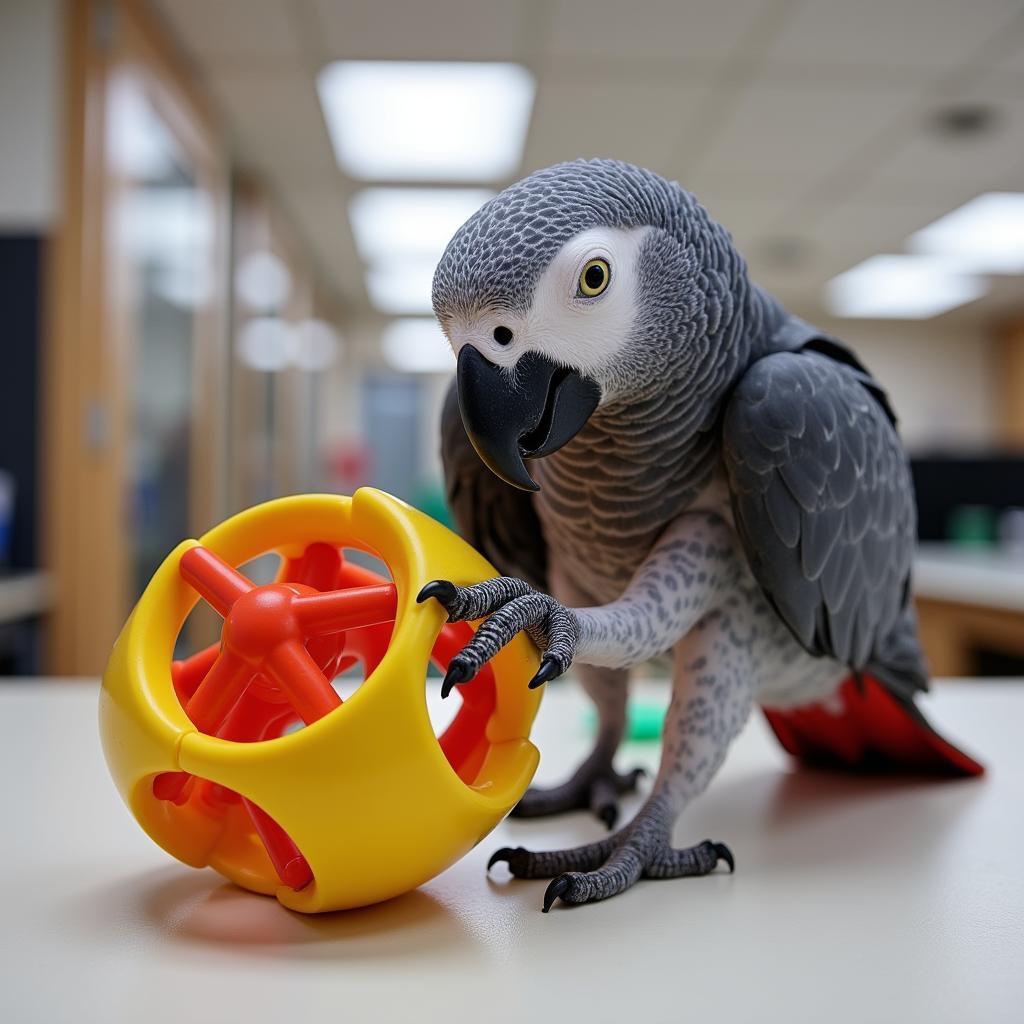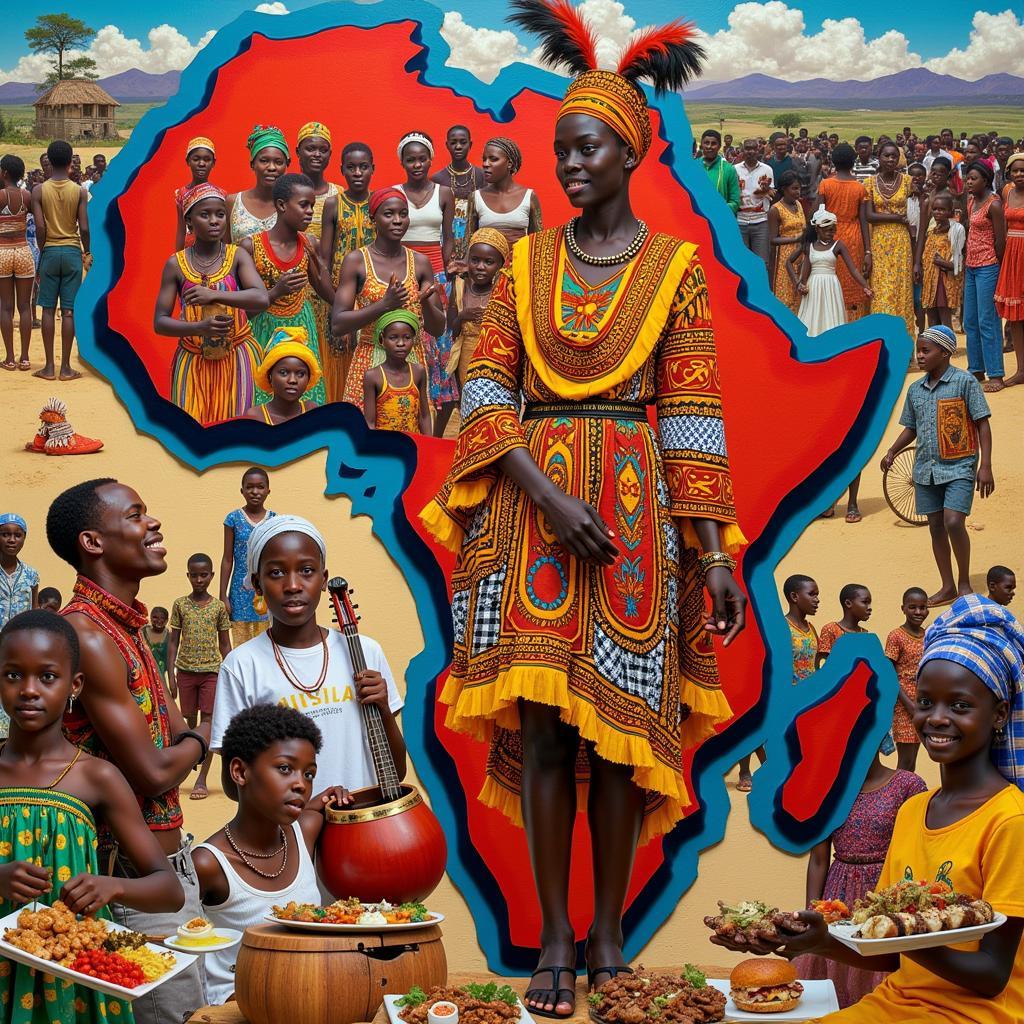African Culture: Exploring the Art of Ear Piercing
Ear piercing in African culture is more than just a fashion statement. It’s a deeply rooted tradition, rich with symbolism and meaning that varies across the continent’s diverse ethnic groups. From marking rites of passage to signifying social status and even enhancing beauty, ear piercing holds a unique place in the tapestry of African Life. This article explores the fascinating history and diverse practices of ear piercing across Africa, delving into its cultural significance and evolving role in modern society.
Many African communities have practiced ear piercing for centuries. It’s a tradition passed down through generations, carrying profound cultural implications. In some cultures, ear piercing is an integral part of initiation ceremonies, marking the transition from childhood to adulthood. It can symbolize belonging, identity, and the acceptance of societal responsibilities. For others, it’s an adornment, a way to enhance beauty and express individuality. The materials used, the placement of the piercings, and the designs of the earrings themselves often tell a story, reflecting a person’s heritage, social standing, and beliefs.
The Significance of Ear Piercing in Different African Cultures
The significance of African Culture Ear Piercing varies greatly across different regions and tribes. For example, among the Maasai of East Africa, both men and women traditionally pierce their ears. Large, elaborate earrings are often worn, stretching the earlobes over time, a symbol of beauty and status. Among the Himba people of Namibia, ear piercing is a vital rite of passage for girls, marking their entry into womanhood. Different styles and placements of piercings indicate different stages of life and social roles. Similarly, in many West African cultures, ear piercing is a common practice with intricate designs and elaborate jewelry often signifying wealth, lineage, and spiritual beliefs. The Fulani people, for instance, are known for their large, ornate earrings.
You might be interested in seeing some striking african beauty pictures. They often feature individuals adorned with traditional earrings.
Ear Piercing as a Rite of Passage
In many African cultures, ear piercing serves as a powerful rite of passage, particularly for young girls. This ritual often marks their transition into adulthood and their readiness for marriage and motherhood. The ceremony is frequently accompanied by celebrations and rituals, reinforcing the significance of this life stage. In some communities, the type of earrings worn after the piercing signifies the girl’s new status within the community. This tradition connects them to their ancestors and reinforces their cultural identity.
Materials and Styles: A Reflection of Cultural Identity
The materials used for earrings and the styles of piercing also carry cultural significance. From simple wood and bone to precious metals and intricate beadwork, the materials chosen often reflect the resources available in a region and the values of a specific group. For instance, the use of gold in some West African cultures represents wealth and prestige, while the intricate beadwork of the Zulu people reflects their artistic traditions. The designs themselves can be symbolic, representing animals, plants, or spiritual symbols.
Do you admire the vibrant colors and patterns of african bird print? Similar motifs are often found in traditional African jewelry, especially earrings.
Evolution and Modern Interpretations
While traditional practices remain important, ear piercing in Africa has also evolved alongside contemporary trends. Today, many young Africans embrace both traditional and modern styles, creating a unique blend that reflects their dual heritage. Modern materials and designs are incorporated, yet the underlying respect for the cultural significance of ear piercing remains strong. The fusion of old and new demonstrates the dynamic nature of African culture, constantly adapting and reinventing itself.
Awa Ndiaye, a Senegalese cultural anthropologist, explains, “Ear piercing in Africa continues to be a powerful symbol of identity, both traditional and modern. It’s a living tradition, evolving to reflect the changing times while still honoring its rich cultural roots.”
Conclusion
African culture ear piercing is much more than a simple adornment. It’s a powerful expression of cultural identity, a mark of tradition, and a celebration of life’s milestones. From the intricate designs to the rich symbolism, ear piercing continues to hold a profound place in the heart of African cultures, connecting generations and preserving a unique heritage for future generations.
FAQ
- What is the significance of ear piercing in African culture? It varies greatly depending on the specific tribe or region but often symbolizes rites of passage, social status, beauty, and cultural identity.
- Are ear piercings common for both men and women in Africa? In some cultures, both men and women traditionally pierce their ears, while in others, it is predominantly a female practice.
- What materials are traditionally used for African earrings? Materials range from wood and bone to metals like gold and silver, and elaborate beadwork.
- How has ear piercing evolved in modern Africa? Modern interpretations incorporate contemporary styles and materials while still respecting traditional meanings.
- Where can I learn more about specific African ear piercing traditions? Researching specific tribes and regions will offer more detailed information about their unique customs.
Scenarios
- Scenario 1: A young girl in a rural village undergoes her first ear piercing as part of a coming-of-age ceremony, marking her transition into womanhood.
- Scenario 2: A Maasai warrior wears large, beaded earrings as a symbol of his status and bravery.
- Scenario 3: A young African woman living in a modern city incorporates traditional African designs into her modern earrings, celebrating her heritage.
Further Exploration
Explore more about African traditions with these articles: African captions for Instagram and African Fish Eagle in Flight.
For support, please contact us via phone at +255768904061, email at kaka.mag@gmail.com, or visit us at Mbarali DC Mawindi, Kangaga, Tanzania. We offer 24/7 customer service.



